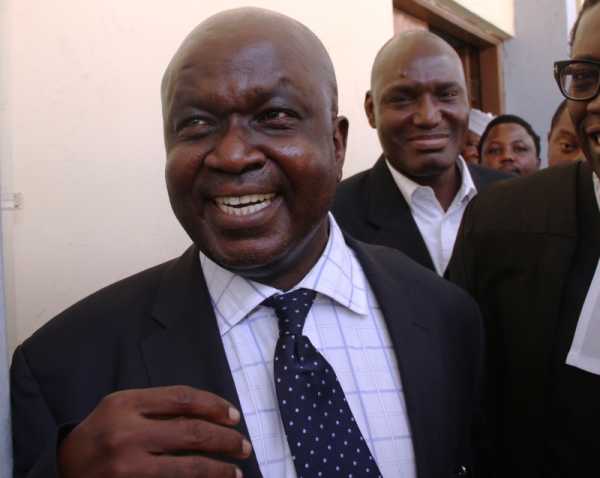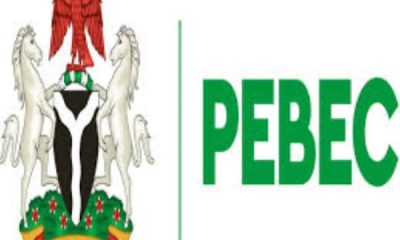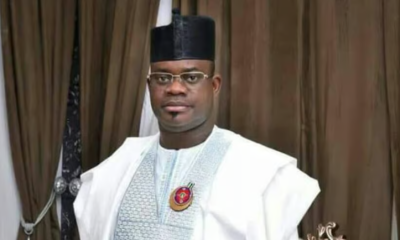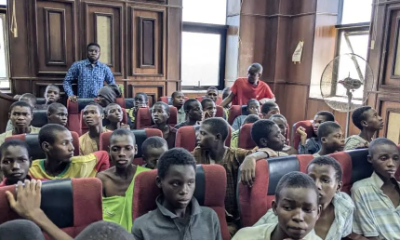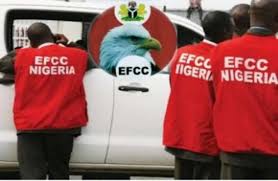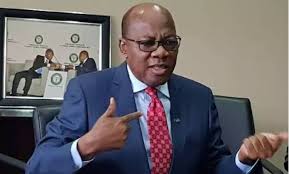The EFCC has submitted call and text message logs belonging to lawyer Ricky Tarfa to the Lagos Division of the Federal High Court as exhibits in the on-going bribery trial of the lawyer and a High Court judge.
Danladi Daniel, a detective with the anti-graft office, on Thursday tendered the evidence on the senior lawyer, Justices Mohammed Yinusa and H.A. Ngajiwa, both of the Federal High Court in Lagos.
Yinusa was dismissed last year by the National Judicial Council after a probe panel indicted him of corruption in other cases.
Cross-examined by Mr. Tarfa’s counsel, Abiodun Owonikoko, Daniel said the lawyer and the judges exchanged bank account details over the phone in an alleged attempt to pervert the course of justice.
“On January 2, 2014, there were three text messages between the defendant and a member of his staff stating that they were in court for a case to be assigned before Justice Yinusa.
“There are biometrics captured by MTN communications of the defendant and Justice Yinusa, the voice communications were from Tarfa’s MTN, number- 08034600777 and Justice Yinusa’s MTN number-08035967291,” Mr. Daniel said.
But Mr. Tarfa’s lawyer countered the allegations against his client, saying the EFCC had no case because it allegedly obtained some of its evidence by deceit, and that the lawyer and the judges have been friend all the way from the university days in Maiduguri.
“The defendant’s phones were retrieved by deceit by the operatives of the EFCC; they told Tarfa’s driver that his boss was requesting for his phones and when he brought the phones, they were seized,” Mr. Owonikoko said.
He further stated that the EFCC obtained the call logs after it had already charged Mr. Tarfa to court, adding that anti-graft officials also allegedly failed to prepare a citation of his client prior to his arraignment.
“The phones did not become an exhibit of the EFCC until Feb. 9, after the defendant was charged,” Mr. Owonikoko said. “You did not try during the course of your investigation to profile Rickey Tarfa and his law firm.”
But Mr. Daniel read aloud details of alleged voice communications including late —night calls— between Mr. Tarfa and Mr. Yunusa.
“Esther Agu, a staff of the defendant, made a payment of N2.5 million into the bank account of Justice Yinusa.
“Based on the account records, the payments were made on May 15, 2015.
“The payments were made when there were three EFCC cases in which Tarfa was the counsel for the opposing parties before Justice Yinusa.
“The communications started sometime in February 2015 and ended sometime in September 2015 after judgments were delivered in those cases.”
He also said Ngajiwa also gave Tarfa details of his bank account for alleged gratification.
“There were some text messages between Justice Ngajiwa and the defendant on October 16, 2014, in which Justice Ngajiwa sent his Guaranty Trust Bank details to the defendant.
“The defendant also sent another person a text message on that day to pay $5, 000 into the bank account of the judge,” Mr. Daniel said.
Tarfa’s lawyer however maintained the commission has no evidence directly linking Rickey Tarfa’s chambers to the bank accounts of the judges.
“Our findings revealed that the alleged UBA bank account which belonged to Justice Mohammed Yinusa, belonged to someone who bears the same name, one Mr Mohammed Auwal Yinusa,” he said.
Owonikoko tendered an affidavit sworn by Justice Yinusa’s alleged namesake that claimed ownership of the said account, but said his client was in touch with the judges as acquaintances.
“Justice Yinusa was one year junior to Rickey Tarfa when he was studying law at the University of Maiduguri from 1982-1986 and they are friends.
“Justice Ngajiwa worked at the chambers of Rickey Tarfa for over 17 years.
“Ever since Ngajiwa became a judge, Rickey Tarfa has never had a case before him.
“Before Ngajiwa became a judge, he had over 300 cases he was handling at the Rickey Tarfa chambers some of which are still pending in court,” Mr. Owonikoko said.
Presiding Justice Aishat Opesanwo adjourned the case to July 7.

 Health5 days ago
Health5 days ago
 Entertainment7 days ago
Entertainment7 days ago
 Crime6 days ago
Crime6 days ago
 Education1 week ago
Education1 week ago
 Health1 week ago
Health1 week ago
 Comments and Issues6 days ago
Comments and Issues6 days ago
 Football7 days ago
Football7 days ago
 Latest6 days ago
Latest6 days ago
